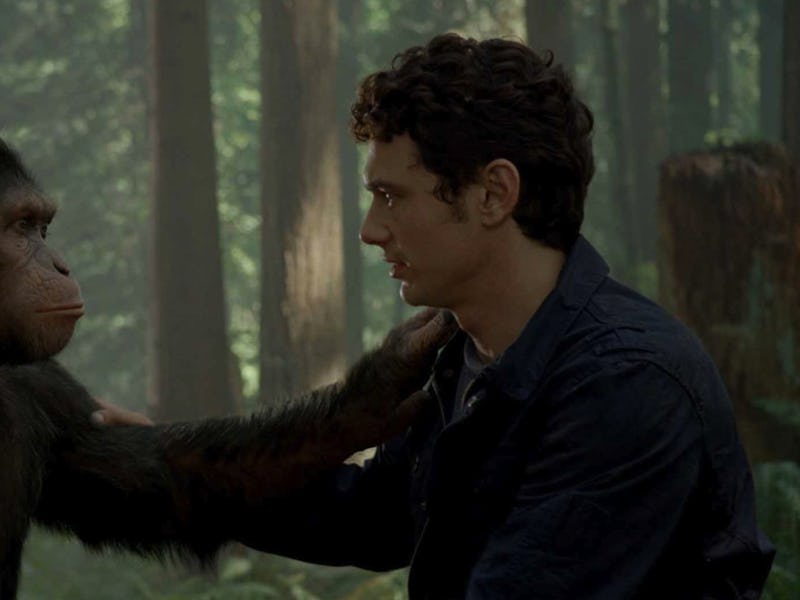For four decades, the predominant belief among scientists was that nonhuman primates could not produce human sounds because of limitations in their vocal tract anatomy. Now a team of international scientists are debunking that claim with evidence that it’s a difference in neural capability, not anatomy, that has kept primates from communicating like humans.
In a paper published in Science Advances, the scientists explain that they hope their research could help narrow down the origin of human speech. They came to their conclusion by working with macaques — a monkey that belongs to the genus of Old World monkeys. But they argue that the existence of human-like vocal tracts in macaques suggests that more recently evolved primate species, like chimpanzees, likely have a similar vocal tract as well.
If that’s true, then the fact that the chimp Caesar in the franchise Planet of the Apes developed the capability for human speech makes scientific sense. In the film, Caesar becomes hyper-intelligent because his brain is affected by an antiviral drug called ALZ-112. Looking at this research, it’s possible that as a chimp Caesar had an anatomy capable of speech all along — and it was the change made to his brain that made the difference.
To come to this conclusion, the researchers used x-ray videos to study and quantify the vocal tracts of macaques during their vocalization, facial displays, and feeding. Previous research hadn’t looked at live macaques, and instead came to a conclusion from plaster casts made from a cadaver monkey’s vocal tract.
They took the data on the macaque’s physical attributes from the x-ray videos and plugged it into a computer model that could predict and simulate the monkey’s vocal range. They determined that the macaque could produce vowel sounds and full sentences with its vocal tract but lacked the neural ability to actually speak. The researchers note that while humans could likely understand a macaque (again, if it had the neural capability) we still wouldn’t think the monkey sounds like a human.
An X-ray of a macaque's vocal anatomy.
The researchers now hope to research chimps in the same way, and believe primates could be used a model to understand early human speech development and speech evolution.
“Now nobody can say that it’s something about the vocal anatomy that keeps monkeys from being able to speak — it has to be something in the brain,” said co-author Asif Ghazanfar in a statement. “Now, the interesting question is, what is it in the human brain that makes it special?”
